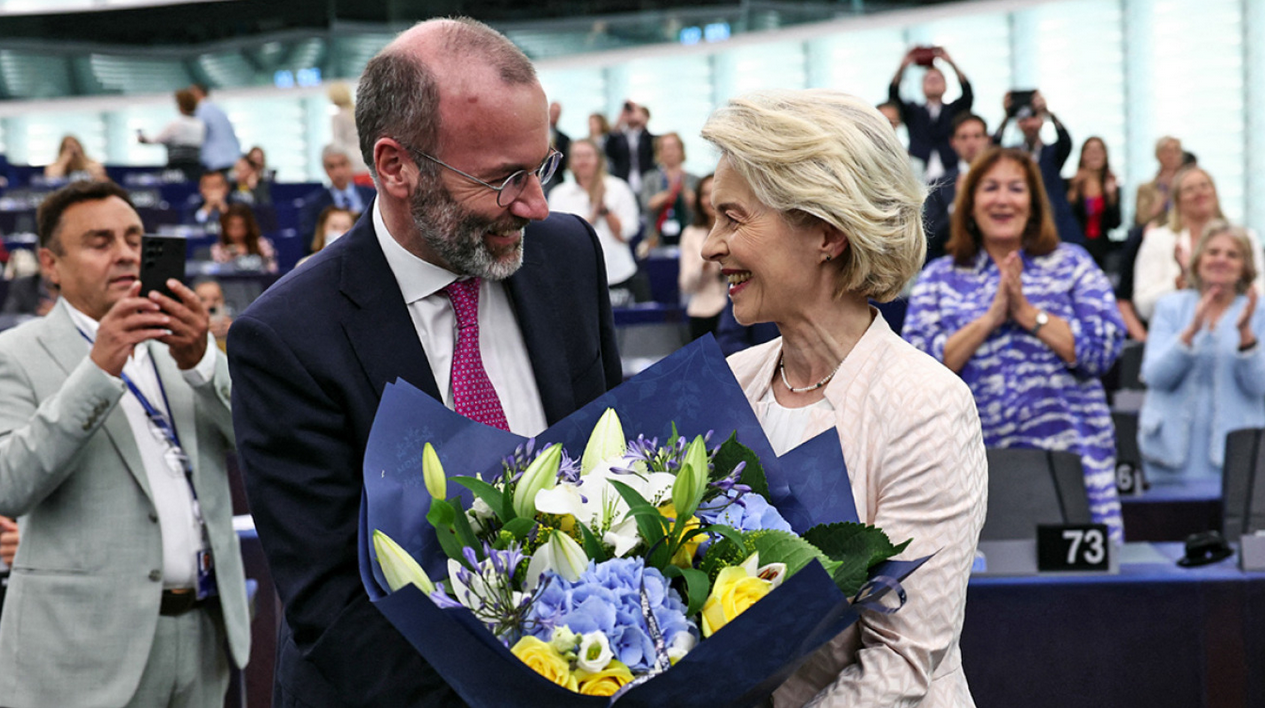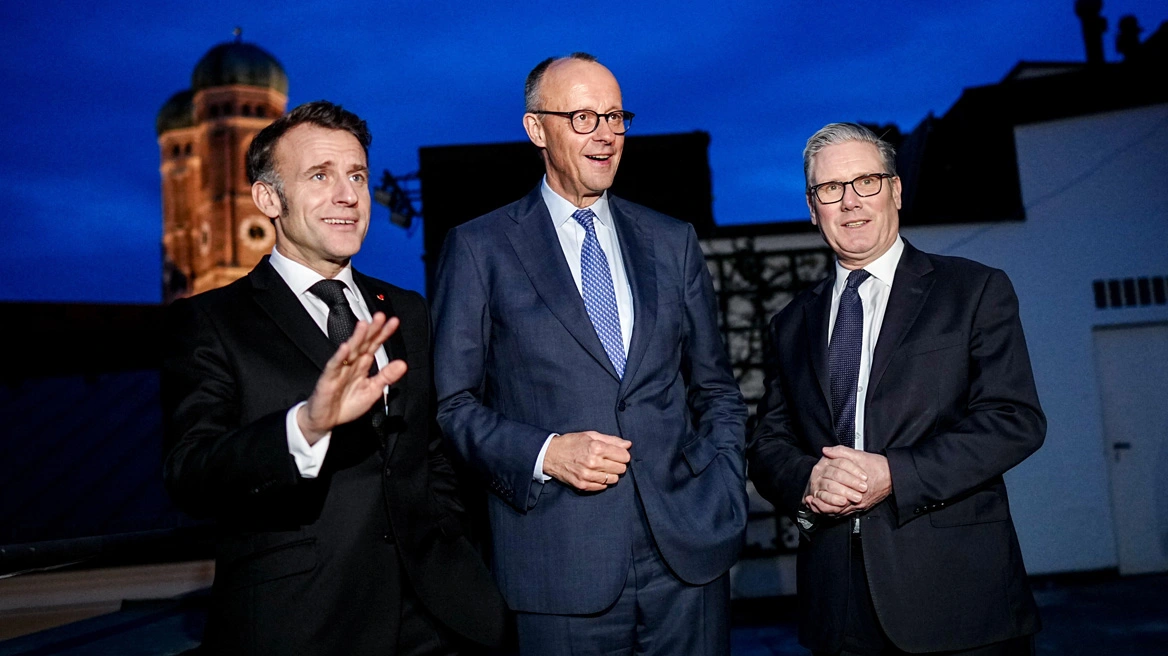Ursula von der Leyen will remain President of the European Commission for the next five years, as she managed to secure a broad majority in the European Parliament, further strengthening her position.
The decision of the Greens’ political group to support her candidacy, literally at the last moment, proved decisive, as President von der Leyen received 401 votes, far exceeding the majority threshold of 360 votes, when in 2019 she had received just 9 votes more.
Although Ursula von der Leyen had secured the support of the so-called “governing coalition” of the European Parliament, namely the center-right European People’s Party (EPP), the Social Democrats, and the Liberals, the chances of not garnering the necessary votes for re-election were slim but present.
Von der Leyen’s winning plan
In recent weeks, President von der Leyen herself had been on a vote-hunting mission, trying to attract as many MEPs from the so-called “pro-European” political groups as possible, while maintaining an indifferent or even hostile stance towards the left and the right in the EP. As she stated during the press conference following her election, the plan “paid off.”
The fact that the left and right political groups stood together against the President of the European Commission triggered the reflexes of other undecided MEPs, who managed to cover the leaks of MEPs who refused to follow the official line of their political group. Although the vote is secret, making it impossible to determine who voted for or against her candidacy, some MEPs made their intentions known. For example, the 6 MEPs from the French Les Républicains (LR) party, which belongs to the EPP, voted against Ursula von der Leyen, as did the 5 German MEPs from the FDP, who belong to the Renew Liberals. At the same time, French MEPs belonging to the Greens political group voted against the Commission President, while their German colleagues voted in favor. This happens because in the EP, MEPs indeed vote according to their conscience without caring about “party discipline” or their possible expulsion.
Promises in all directions
President von der Leyen’s speech in the Plenary of the European Parliament in Strasbourg, shortly before the start of the secret vote, contained all the elements that could attract MEPs from the Socialists to even some from the European Conservatives and Reformists group.
To the Social Democrats, she promised to appoint a Commissioner responsible for the housing crisis. To the Greens, that the EU will remain steadfast in its Green Deal goals, albeit with some modifications. To the Liberals, that she will boost the competitiveness of the European economy by immediately reducing administrative burdens, appointing a Vice-President of the Commission responsible for reducing bureaucracy. To the center-right of the EPP, she promised a Defense Commissioner and the creation of a European air defense shield, while to those seated to the right of the EPP, she promised to strengthen Frontex and Europol and better guard the external borders and control migration. Meanwhile, her decision to appoint a Commissioner responsible for the Mediterranean Sea is interpreted by some in Strasbourg as an attempt to approach Giorgia Meloni, as in the next legislative period in the EP, many different alliances between political groups will be needed.
In search of commissioners
With the full support of the European Council and the European Parliament, Ursula von der Leyen will begin, in the coming weeks, to send letters to the governments of the EU member states, asking them to propose the new Commissioners who will staff the next Commission, in which many new portfolios will be created, such as for fisheries and oceans, for tackling the housing crisis, for the Mediterranean Sea, for equality, and for defense.
Ask me anything
Explore related questions





